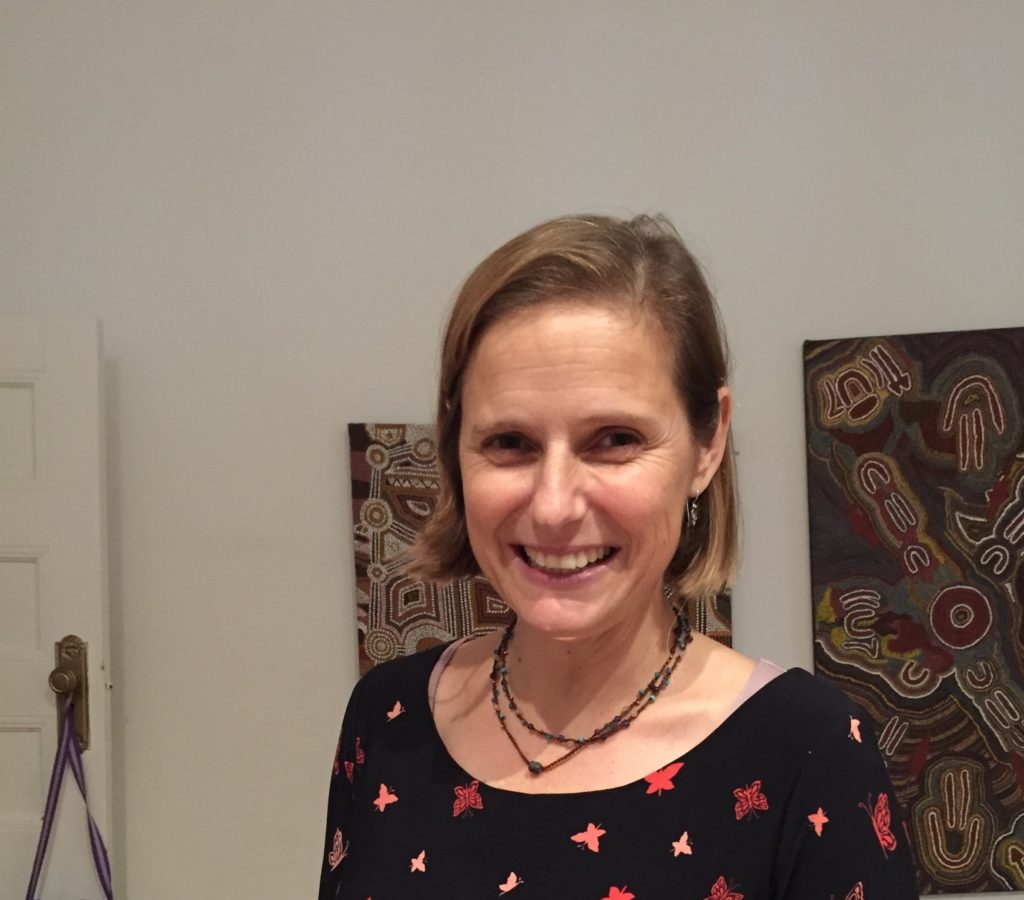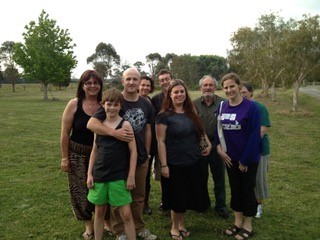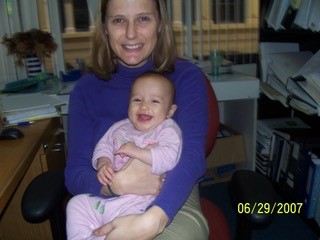
Kirsty Ruddock is the Managing Lawyer for EDO’s Safe Climate Corporate & Commercial team. Kirsty is an experienced climate lawyer and litigator, having been involved in representing and advising clients on a range of environmental law issues. Kirsty and her team work with clients to tackle climate greenwashing and use corporate and consumer law to run groundbreaking litigation, holding Australia’s biggest companies to account for their promises on climate action.
What’s your legal background and how did you come to work at EDO?
I’ve had a bit of a varied background as a lawyer. After studying at ANU, I started working at the Australian Government Solicitor in regulatory law mostly competition/consumer/environmental/native title areas. After six years there I was lucky enough to have experience in the Pacific working in the Samoan Attorney-General’s office and the Solomon Island’s Public Defender’s Office. On my return to Australia, I wanted to make a difference and came to the EDO especially after seeing the devastation first hand of biodiversity loss through logging in Solomon Islands. I started in Cairns in 2004 then EDO NSW until 2013.
After the EDO, I worked managing investigation areas at the ACCC, then regulating State Significant developments at Department of Planning and Environment and the Natural Resources Access Regulator (who is responsible for water compliance). As the State of Environment Report has recently revealed working in environmental compliance within government is a tough gig. It was a struggle to ensure enough was being done to enforce the laws or have good environmental laws in the first place. I wanted to return to a job where I felt like I was personally able to make a difference and be more hands on after undertaking management roles in the last nine years. I’ve been lucky enough to now come back full circle to a job I love at the EDO to use my environmental regulation and skills in Australian Consumer Law.
Tell us about an interesting or groundbreaking case that you’ve worked on
I have worked on so many interesting cases in my career. In the corporate area, I’m most proud of being involved in the development of the law of unconscionable conduct under the Australian Consumer Law. In particular, I was involved in the investigation and commencement of a number of cases against private colleges. Many had targeted indigenous communities and others vulnerable consumers to sign up to courses in management and the like, with enticements of free laptops or cash. Only last year one of the colleges received a record fine under the Australian Consumer Law of $153 million for engaging in systemic unconscionable conduct in relation to the enrolment of vulnerable consumers in online diploma courses.[1] We worked to prove that it wasn’t just a few consumers targeted, but there was a system of behaviour of targeting vulnerable consumers, building an earlier case I worked on with Fleur Ramsay when she was at the bar.
When I was at the EDO previously – Japanese Whaling, climate cases, cultural heritage disputes, development at Catherine Hill Bay. I am also most proud of my involvement in the 34 prosecutions commenced by the NSW water regulator NRAR post EDO’s work highlighting the problems with water compliance.

Corporate law is a relatively new arena for climate change action. What’s exciting to you about working in this space?
Even when I was working at the EDO previously, we often highlighted this area of law to regulators- back then about claims of “clean coal”. There were some early “carbon neutral” greenwashing cases taken by the ACCC in early 2000s. With the urgency of the need to act on climate change, there is also a corresponding boom in greenwashing by companies to prove their climate credentials. As a result regulators like the ACCC, ASIC and APRA area also looking closely at the area. As the ACCC Chair Gina Cass-Gottleib recently in her speech to the National Consumer Congress stated about the ACCC’s approach: “This priority is aimed at addressing concerns that businesses are falsely promoting environmental or green credentials to unfairly capitalise on increasing consumer demand for products or services with these benefits”.
Greenwashing can also impact on competition by disadvantaging those companies who are doing the correct thing and investing in renewables. The EDO is examining claims being made by companies to ensure transparency around their advertising, climate plans. We are also examining directors duties under the Corporations Act and other legal obligations. We are also keen to ensure we work to help communicate our work to help educate both consumers and the public about greenwashing and corporate obligations.
You’ve just sent a legal letter to HESTA on behalf of a concerned member regarding HESTA’s continued investment in fossil fuels. What do you hope to achieve by engaging directly with companies and regulators?
Many people do not know what their super is investing and would be concerned to know it is supporting the expansion of some fossil fuels and other investments that are not climate friendly. We wrote to HESTA because of their continued investment in Woodside and Santos who are significantly expanding their gas projects. The letter is to draw to their attention their obligations as Trustees and Directors under the Superannuation Industry (Supervision) Act 1993 to highlight the climate risks of these investments. We have also highlighted how HESTA may be engaged in misleading or deceptive conduct by investing in those companies while representing it is reducing emissions and aims to reach net zero by 2050, and is a leader on climate change. Both Woodside and Santos are significantly expanding their gas projects at present instead of decarbonising, with the Scarborough and Barossa projects amongst others.
Your team is running a landmark case over Santos’ clean energy and net zero claims. Why is this case important?
The Federal Court case against gas giant Santos over its claims natural gas is “clean fuel” and that it has a credible pathway to net zero emissions by 2040 is the first court case in the world to challenge the veracity of a company’s net zero emissions target, as well as the first in Australia raising the issue of climate greenwashing against the oil and gas industry. Acting on behalf of the Australasian Centre for Corporate Responsibility (ACCR), it is also a landmark, world-first test case in relation to the viability of carbon capture and storage, and the environmental impacts of blue hydrogen, increasingly touted as a key element in gas companies’ pathways toward net zero emissions. This case is about holding gas companies like Santos to account for the claims they make about their product and future in a low-carbon world.
This month, the ACCR filed significant new and more detailed allegations against Santos over alleged greenwashing.
What motivates you to do this work?
It is fantastic to be back at EDO working with such impressive lawyers in my team such as Zoe Bush, Anna Gudkov and Clare Saunders. It is just exciting being in an organisation with so many great staff who are running such impressive cases across the board and at a national level. The communications and support has improved so much since the time back in late 2000s when I would have to ring the SMH myself to try and publicise our cases.
As one of my clients in Cardwell once said “You’ve got to get out enjoy what you are trying to save”. I love enjoying the environment mainly walking and swimming. I’ve returned to the EDO because I want to be able to say to my kids that I contributed to the fight to keep global warming under control, and it is also a great opportunity for me to mentor and support the next generation of amazing public interest lawyers. As my children have Samoan heritage, I want a strong future for them both in the Pacific and Australia. As our Pasifika colleagues will attest, the Pacific and its culture is so under threat from climate change and has caused so little of the problem, so climate justice is also so important part of the challenge ahead.






